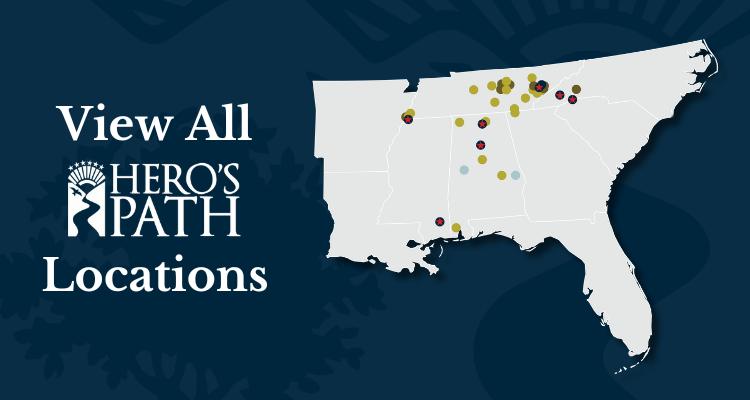Transitioning from military to civilian life can be a monumental shift for many veterans. This change often brings about feelings of isolation and, for some, battles with addiction. These challenges, however, can be met with resilience and hope. Here are nine practical coping strategies for veterans navigating recovery and reconnection.
Leverage Professional Resources
Seeking professional help is a crucial step in dealing with addiction. The Veterans Affairs Department offers various services, including counseling and addiction treatment programs. Programs like Bradford’s Hero’s Path work directly with the VA to provide high-quality care to veterans. Additionally, exploring therapy options, such as cognitive-behavioral therapy (CBT), can equip veterans with strategies to manage triggers and cravings. It’s important to remember that reaching out for help is a sign of strength, not weakness. Professional support can provide the guidance and tools necessary for recovery.
Establish a Routine
One of the veterans’ most grounding actions is establishing a daily routine. The military provides a structured environment; many veterans find comfort and stability in this order. Creating a new routine in everyday life mimics this structure, providing a sense of purpose and normalcy. This routine could include set times for meals, exercise, hobbies, and social interactions. For example, starting the day with a morning walk, followed by a healthy breakfast, can set a positive tone for the rest of the day. Regular appointments or meetings related to recovery efforts, such as support groups or therapy sessions, can also be beneficial.
Engage in Physical Activity
Physical activity is a powerful tool in managing addiction and enhancing mental health. Exercise releases endorphins, which have mood-lifting properties and can be a healthy distraction from cravings or negative thoughts. The activity doesn’t have to be strenuous; even daily walks, yoga, or gardening can be effective for veterans who enjoy the physical challenges of military life; joining a fitness group or local sports league can offer physical engagement and social interaction.
Practice Mindfulness and Meditation
Mindfulness and meditation can be particularly effective for veterans coping with addiction and isolation. These practices help bring attention to the present moment, reducing stress and breaking the cycle of negative thoughts often accompanying isolation. Mindfulness techniques can vary, including guided meditations, breathing exercises, or spending time in nature. Many free resources are available online, offering guided sessions specifically designed for beginners. The VA also provides mindfulness resources tailored to veterans, helping them incorporate these practices into their daily lives.
Discover New Interests or Hobbies
Exploring new interests or reviving past hobbies can offer veterans a sense of achievement and joy, serving as a valuable outlet during recovery. Whether learning a musical instrument, taking up photography, or building a garden, hobbies can provide a creative escape and a way to express oneself beyond words. These activities not only occupy the mind and reduce the idle time that could lead to substance use but also help build a new identity outside the military. Community centers and online platforms offer classes and groups that can introduce veterans to new skills in a supportive environment.
Embrace Nature
Connecting with nature can have a profound healing effect, reducing feelings of stress, anger, and isolation while improving mood. Activities like hiking, fishing, camping, or simply spending time in a park can be incredibly grounding and restorative. For veterans battling addiction and isolation, nature can act as a peaceful refuge from the challenges of daily life. The tranquility of natural settings provides a perfect backdrop for reflection, mindfulness practices, and physical activity, benefiting the recovery process.
Volunteer Your Time
Volunteering offers a unique way to connect with others, give back to the community, and gain a sense of purpose. Many organizations value the leadership skills, discipline, and teamwork veterans bring. By dedicating time to causes they care about, veterans can forge new connections, reduce feelings of isolation, and boost their self-esteem. Whether helping out at a local food bank, mentoring youth, or participating in community clean-up events, volunteering provides an opportunity to make a positive impact while supporting one’s recovery journey.
Develop a Support System
Building a strong support system is crucial for veterans facing addiction and isolation. This network can include family members, friends, fellow veterans, healthcare providers, and members of support groups. A support system offers emotional backing, practical assistance, and a sense of security, knowing that there are people who care and are willing to help. Communicating openly with these individuals about your challenges and recovery goals is important, allowing them to provide the support you need.
Set Realistic Goals
Setting small, achievable goals can provide direction and accomplishment in recovery. These goals can relate to personal health, professional aspirations, or building social connections. Setting realistic expectations is essential, breaking down larger goals into manageable steps. Celebrating each milestone, no matter how small, can boost morale and motivate continued progress. Goal setting encourages forward-thinking and can help veterans shift their focus from past struggles to future possibilities.
Expanding the Toolkit
The journey through recovery and overcoming isolation is deeply personal, and what works for one veteran may not for another. It’s about finding the right strategies that resonate with your needs and lifestyle. Incorporating these additional coping mechanisms into your recovery toolkit can further support your path to healing. Seeking a fulfilling, balanced life after service is possible and something every veteran deserves.
Each step taken towards recovery is a testament to the resilience and strength inherent in all veterans. Remember, the journey to recovery does not have to be walked alone—support is available, and hope is always on the horizon. Call Bradford’s Hero’s Path Program at xxx-xxx-xxxx today to take the first steps on your path to recovery.






